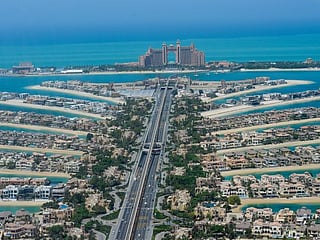Chart a new recovery plan for UAE's hotel industry - but COVID-19 isn't the only issue
Global vaccination drive will need time to filter down to travel industry

Also In This Package
Over the last year, COVID-19 has thrown up enormous obstacles to international travel and, even in economies which have sought to remain open, like the UAE, hotel stays have dried up.
However, it is not only COVID-19 that can block up the borders. Geopolitical differences can also create difficulties and have done so throughout history. To add to these complications, many GCC economies have also been in danger of a hotel oversupply situation.
That’s great for tourists and for governments looking to stimulate visitors, but not so good for the hotel owners and developers struggling to make a return on their investment. It is hopefully something to look forward to that all of these problems may gradually ease off.
The vaccination programme is likely to facilitate global travel again, at least towards the year-end, although this is clearly not a panacea. If only vaccinated tourists can travel easily, that will rule out most family travel and young people seeking adventure and entertainment, because most countries will not have got around to vaccinating the young before year-end.
There is the danger too of new variants, like the South African, where the vaccines work less well. Added to that, while upscale travellers, who have kept their jobs and the ability to work from home will have additional spending power, a significant proportion of the global population will have felt the pinch and may well skip a vacation this year.
Thus, while a gradual uptick in arrivals to Gulf destinations can be expected, stimulated by the Expo, we should not expect a full recovery before 2022 or, more realistically, 2023-24. What will certainly assist the region is that the easing of regional tensions will also open the borders further.
We have already seen a large influx of Israeli tourists into the UAE and, as Israel completes its domestic vaccination programme, it will become a safer place to visit for tourists from around the GCC.
Investment may follow. As David Fattal, CEO of Fattal Hotels, which operates and/or owns 220 hotels in 20 countries, noted of the recent Israel-UAE accord, “This will help raise the flag of international brands in the respective countries. Guests from the UAE have stayed in our hotels in, say, Germany, and the presence in the Gulf will act as a springboard. This is a very special moment in normalization.”
Similarly, the return of active commercial and political links between Qatar and several of its neighbours will allow another group of visitors to stimulate business and leisure links within the GCC, with the potential for significant cross-border investment to resume.
Finally, the wave of new construction in many parts of the region - notably Saudi Arabia, the UAE and Oman - may also slow as demand remains subdued. Some hotels may remain closed, while new construction projects are deliberately slowed or postponed. That will give a breathing space for hotel owners to start building up revenues again.
So, although times are tough, we should be past the worst.
Sign up for the Daily Briefing
Get the latest news and updates straight to your inbox









